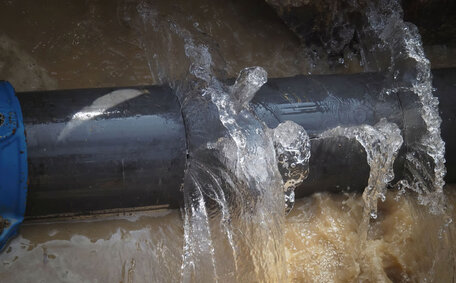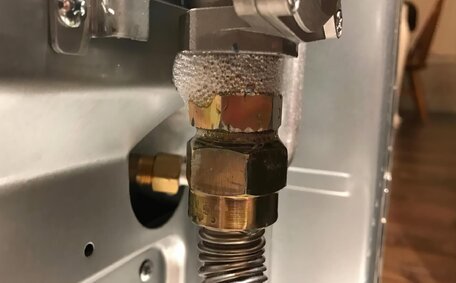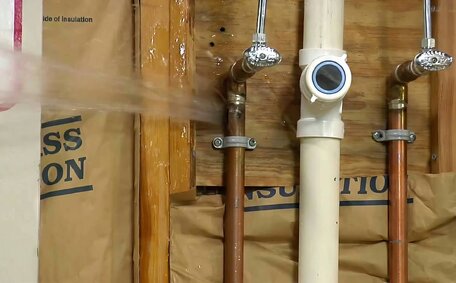Tenant Rights Explained: Pipe Relining Issues
Understanding your rights as a tenant regarding pipe relining, irrespective of your location, is essential. Considered a modern solution, trenchless pipe relining in Sydney is a technique where a new pipe inside old one is installed, guaranteeing uninterrupted service. Boasting a longer life expectancy than pvc pipe, pipe relining presents an efficient alternative to traditional Sydney plumbing methods which often require excavation. In Randwick, specific responsibilities for plumbing system maintenance are allocated to tenants and landlords.
This article will clarify the key rights tenants have regarding pipe relining vs traditional pipe replacement. Grasping the details of your tenancy agreement, including any clauses involving plumbing company responsibilities, is crucial.
Our aim is to enhance understanding between landlords and tenants by shedding light on practices such as installing a new pipe within an existing one. This guide delves into the tenant’s role in the pipe relining process in Randwick.
Understanding precisely what tenants are accountable for can proactively protect your property rights. We’ll offer practical advice to prevent unnecessary plumbing issues, which maintains a tidy area and reduces the need for frequent repairs.
Landlord vs. Tenant Responsibilities for Pipe Maintenance
Generally, the landlord is responsible for normal wear and tear issues related to pipe maintenance and repairs. Strategies like repiping or utilising pipe relining solutions for worn pipes demonstrate the comprehensive way we can effectively manage aging plumbing systems.
Tenants are accountable for any blockages caused by improper disposal of substances and may need pipe relining if responsible for such actions. For instance, mishandled waste like fat or grease down the drain can trigger significant restrictions, just as flushing unsuitable items or overlooking timely reports of leaks can, which could lead to circumstances where relining can become necessary. On the other hand, property owners are obliged to repair damage from external factors like severe weather or tree roots.
To prevent disputes, it’s vital for tenants to promptly notify the landlord about repair needs, ensuring seamless communication. It’s crucial for tenants to notify the landlord promptly, adhering to the established communication channels, when tenant complaints about plumbing service issues are made.
Would highly recommend preventative measures like employing a highpressure water jet, as this benefits both landlords tenants in maintaining plumbing systems and thwarting issues. Promptly informing the landlord about any plumbing disputes is critical to clarify mutual rights and obligations under the tenancy agreement.
Following established procedures will ensure any deliberations about pipe relining result in smooth rectifications. Informing tenants on safeguarding pipe infrastructure and understanding local laws equips them to protect their rights. When well-informed, tenants and landlords can amicably resolve plumbing concerns, including pipe relining.
Landlord-Initiated Pipe Relining: When Is It Justified?
There are certain situations when a landlord may require pipe relining in a rental property without the tenant’s consent:
- If there is an urgent plumbing issue that threatens the safety or livability of the property, such as a major leak or blocked drain, the landlord can authorise immediate repairs including relining.
- Should regular checks reveal issues like a blocked sewer, contributing to considerable pipe degeneration, the landlord may schedule relining services.
- If the plumbing system fails inspection at the start of a new lease, the landlord can make bringing the pipes up to code a condition of tenancy, including relining if needed.
- In the event of challenges like a tree root intrusion into your piping infrastructure, the landlord is obligated to resolve the situation and may opt for relining without imposing extra charges on the tenant.
In these situations, Landlords must give tenants adequate advance notice about scheduled relining work, ensuring they have detailed information on the timeline and access to essential services during the process.
Landlords should manage relining efficiently, allowing tenants to remain in place as long as the repairs do not affect livability.
Landlords can’t charge tenants for standard maintenance repairs, but tenants may bear costs for damage from avoidable clogs. Understanding your tenancy contract, particularly the terms about pipe relining, is essential. Communication and cooperation from both parties ensures pipe work and repairs done are seamless.
When Is It Justified?
If there is an urgent plumbing issue that threatens the safety or livability of the property, such as a major leak or blocked drain, the landlord can authorise immediate repairs including relining.Tenant Rights to Refuse or Request Alternatives
As a tenant, you do have certain rights, and can also seek professional advice, when your landlord proposes pipe relining in your rental property.
- You can refuse pipe relining if the landlord did not provide proper notice or get your consent, except in emergency situations.
- You have the freedom to choose pipe relining over traditional pipe replacement options when selecting the most fitting repair method.
- You can assess your plumbing options, including consulting with a pipe relining specialist, to make an informed decision between relining vs pipe replacement.
- You can negotiate with the landlord on the timeline of repairs to ensure minimal disruption.
- You may be able to get a rent reduction if the work makes part of the property unusable.
However, refusing repairs that affect safety or property condition could violate your lease agreement. Try to compromise if there’s no doubt the landlord demonstrates a clear need.
Before refusing, consult your specific tenancy agreement and local tenancy laws. Seek professional advice if the landlord insists over your objections. Fostering collaboration and dialogue ensures your rights are safeguarded and essential plumbing repairs are undertaken effectively for the next time they’re needed.
Understanding Local Tenancy Laws and Regulations
These laws outline the rights and responsibilities of each party when issues like pipe relining come up.
Under this law, landlords are generally responsible for repairs and maintenance due to fair wear and tear. Tenants are liable for intentional damage they cause.
However, tenancy laws can vary significantly between states, territories and even councils. The specific regulations in Randwick may differ from other parts of Sydney. As a tenant, it’s essential to find out about local laws to ensure your rights are protected.
Awareness of tenancy regulations aids dispute resolution, with transparent obligations fostering successful negotiations and satisfactory repairs. Preventative measures, when effectively carried out, also aid in smooth resolution when problems arise.
Our plumbing team advises tenants to diligently review all relevant tenancy resources to gain a comprehensive understanding of their rights. In case of disagreements, our team advocates for landlord-tenant mediation to find amicable solutions, which is an approach we always encourage. We always stress the importance of staying informed to prevent misunderstandings about pipe repairs.
Refer to organisations like NSW Fair Trading and the Tenants’ Union for guidance.
Knowledge of local tenancy laws by all parties ensures that repairs, such as pipe relining, do not lead to conflicts. Communication and cooperation will lead to the notable benefits pipe relining offers to both parties.
These laws outline the rights and responsibilities of each party when issues like pipe relining come up.
Under this lre liable for intentional damage they cause.
Preventing Situations Requiring Pipe Relining
While >
- A tenant can apply best practices, like avoiding food scraps, fat, oil, or harsh chemicals in drains, to prevent clogs.
- Tenants can regularly pour baking soda and vinegar down drains to keep them clear and running smoothly.
- It’s wise for landlords to schedule regular checks to fit a new pipe inside old one in aged piping systems, particularly for commercial pipe networks, to spot any early leaks or deterioration in your pipes.
- Landlords can assess the sewer pipe integrity, including checking cast iron pipes, with commercial CCTV systems to identify issues not visible from above ground.
- Both parties must be vigilant for leak indications in the broken pipes and promptly report any symptoms such as moisture spots, mould growth, or sinkholes to repair any damage immediately.
- Landlords should curb any flora that might threaten the integrity of the sewer line, addressing roots that can infiltrate and necessitate inserting a new pipe inside old ones.
- When tenants take care not to park vehicles or store heavy materials above storm water and other underground pipes, they prevent potential damage.
Routine maintenance and prompt responses to issues can reduce the necessity for pipe repair through relining. Open communication and cooperation between landlords and tenants is key. Following tenancy laws and best practises will keep plumbing systems running smoothly long-term.
Proactively Maintaining Plumbing as a Tenant
As a tenant, you play an important role in preventing plumbing problems and damage in your rental property. Active maintenance and the option to contact your local plumber, safeguards you against infractions of your lease agreement.
Here are some tips to make sure your plumbing stays in good shape:
- Understand the correct disposal of fats, oils, and food scraps to prevent blocked drains, thereby safeguarding your rental property from clogs over time.
- Use drain strainers in sinks to catch food particles and hair that can cause blockages.
- Flush your hot water system regularly into sinks and drains to dissolve grease build-up and maintain efficiency.
- Periodically use baking soda and vinegar to deodorise drains and keep them flowing freely.
- Be mindful of what gets flushed down toilets - only human waste and toilet paper should go down.
- Immediately report and follow up with the landlord when issues came out like detecting leaky taps or shower heads to prevent potential water damage before issues come out in the open.
- Keep bathroom ventilation fans running and water system sensors like smoke alarm detectors clear to prevent mould and ensure safety.
- Don’t dump toxic chemicals like paint or harsh cleaners down any drains.
- Inspect under sinks regularly for any signs of water leakage and let your landlord know immediately.
Adopting preventive measures provides tenants assurance that potential plumbing issues are addressed early on. This approach offers peace mind, shielding you from liability, costly repairs, and stressful discussions with your landlord.
Remain proactive by being ready to engage a licensed plumber or reporting issues needing emergency attention to your landlord immediately, with written records for diligent follow-up. Proper communication and documentation ensures that discussions about repairs are acknowledged and agreed upon, which prevents misunderstandings in the future.
A proactive approach to plumbing maintenance contributes to a positive tenancy experience. Avoiding negligence shows responsibility and can prevent tense situations over repairs and maintenance.






